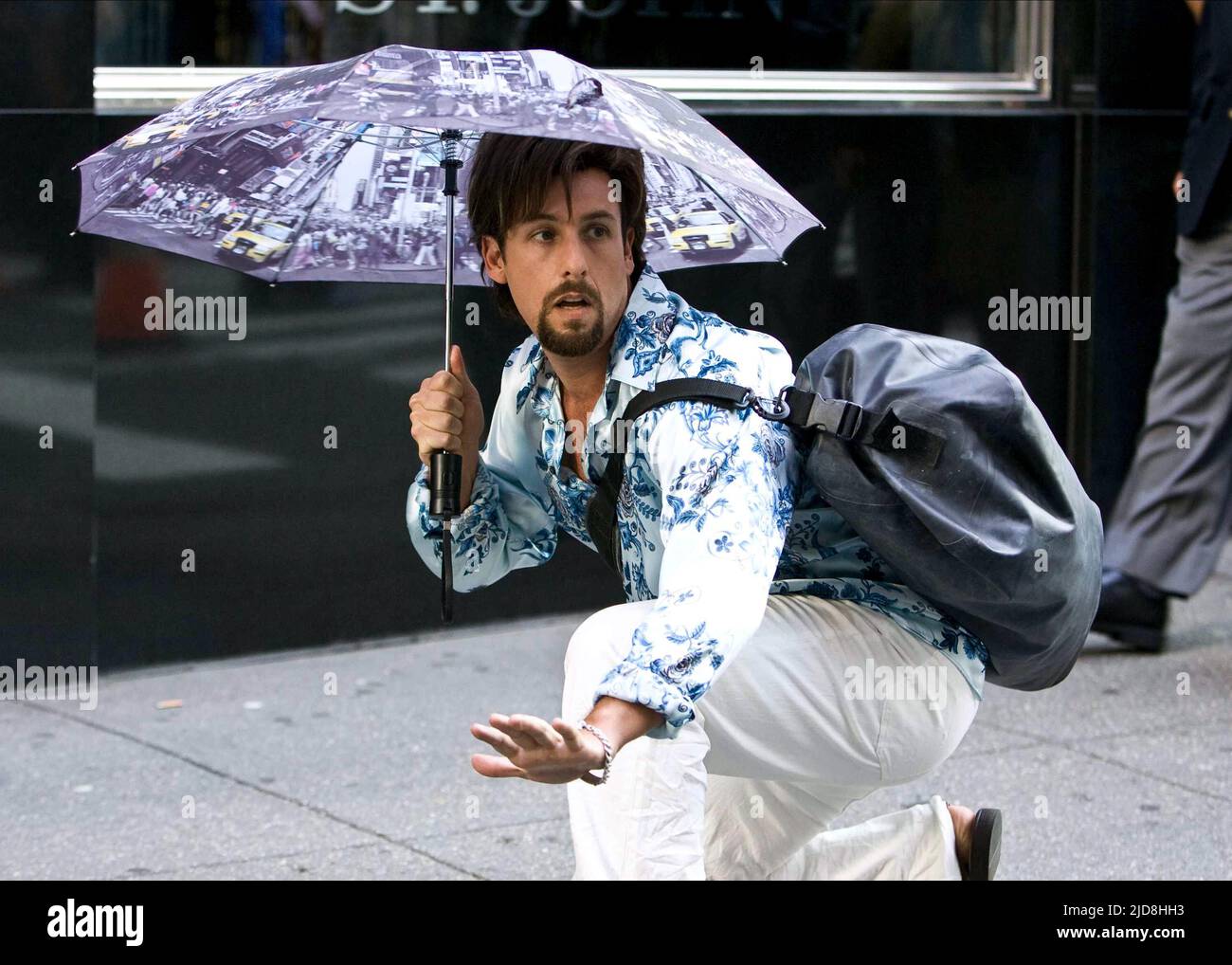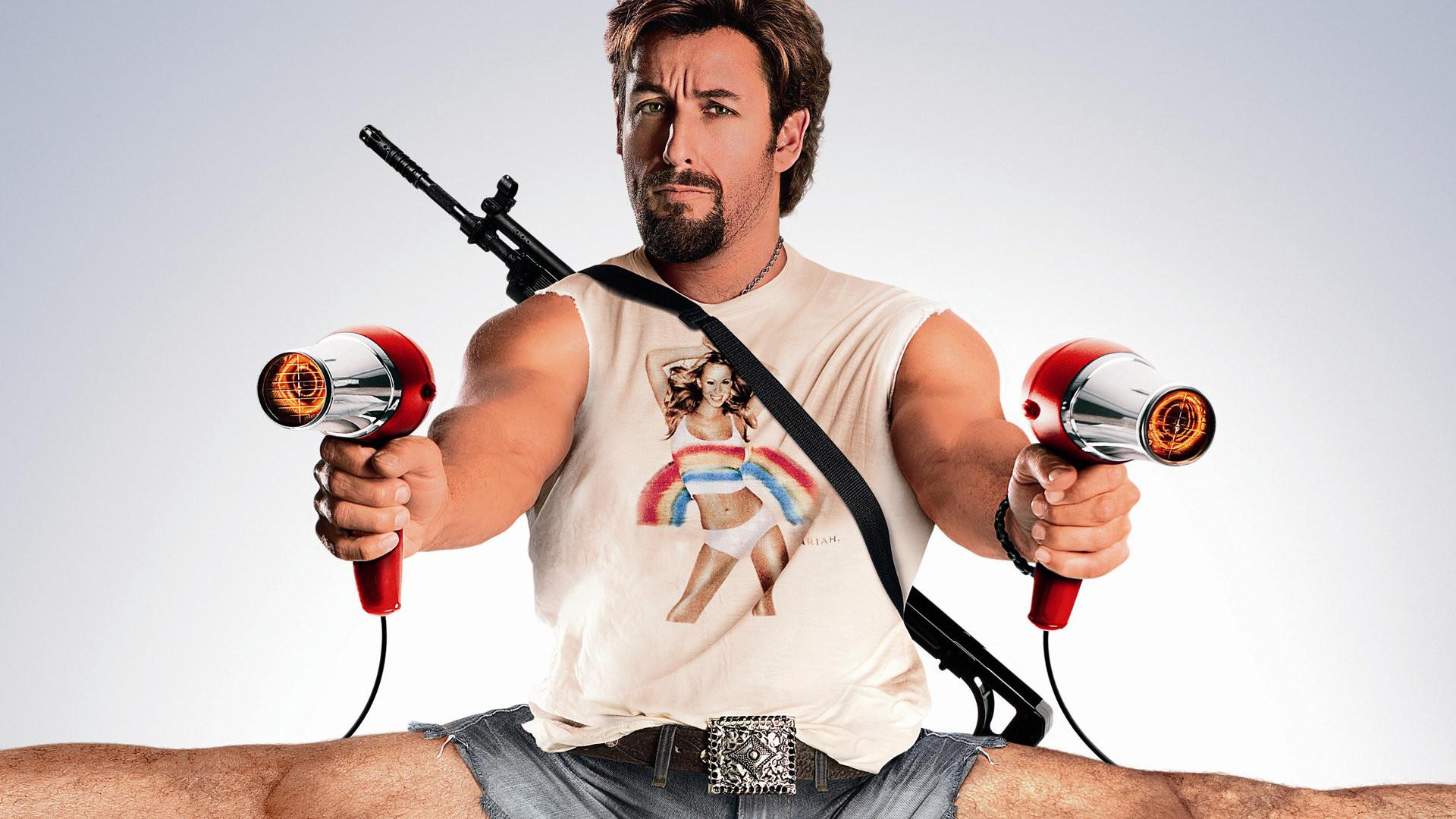The Zohan’s Transformation

Adam Sandler’s “You Don’t Mess with the Zohan” offers a hilarious exploration of a man’s transformation from a seemingly invincible Israeli soldier to a flamboyant New York City hairdresser. Zohan’s journey is marked by comedic mishaps and cultural clashes, but it also reveals a deeper exploration of identity, purpose, and the pursuit of dreams.
Zohan’s Comedic Transition
The film’s comedic heart lies in the contrast between Zohan’s previous life as an elite soldier and his new life as a hairdresser. His exaggerated masculinity and martial arts skills clash with the world of hairspray, curlers, and gossip. The humor arises from his struggle to adapt to a new environment, his misinterpretations of cultural norms, and his persistent attempts to apply his soldierly skills to his new profession. For example, Zohan’s attempt to use his military training to style hair leads to comical results, such as using a grenade launcher to blow dry hair or using a rocket-propelled grenade to cut a customer’s hair. These exaggerated situations highlight the absurdity of Zohan’s transformation and create laughter through the unexpected juxtaposition of his past and present.
Zohan’s Personality and Motivations, Adam sandler you don’t mess with the zohan
Before his transformation, Zohan is portrayed as a confident and patriotic soldier, driven by a sense of duty and a desire to protect his country. He is fiercely loyal to his comrades and embodies the ideals of Israeli military strength. However, beneath this tough exterior, Zohan harbors a secret passion for hairdressing, a dream that he has suppressed due to societal expectations and his own self-imposed limitations. This secret desire drives his decision to fake his own death and flee to New York City, where he can finally pursue his passion.
After his transformation, Zohan’s personality undergoes a significant shift. He becomes more playful, flamboyant, and open-minded. His confidence remains, but it is now channeled into his new profession, where he takes pride in his artistry and enjoys the creative freedom that hairdressing offers. Zohan’s motivations also change. While his initial desire to become a hairdresser was driven by personal passion, he gradually develops a sense of purpose and responsibility towards his new community. He finds fulfillment in helping others, particularly women, to feel confident and beautiful.
The Significance of Zohan’s Chosen Profession
Zohan’s choice of hairdressing as his new profession is significant in several ways. Firstly, it represents a rejection of his former life and a symbolic breaking free from the constraints of his previous identity. By embracing a profession traditionally associated with femininity, Zohan challenges gender stereotypes and demonstrates his willingness to embrace his true self.
Secondly, hairdressing allows Zohan to express his creativity and artistic talent, which he had previously suppressed. His passion for hairdressing is evident in his meticulous attention to detail, his willingness to experiment with new styles, and his genuine desire to make his clients feel beautiful.
Finally, Zohan’s chosen profession provides him with a platform to connect with people from diverse backgrounds and cultures. He uses his skills to build relationships with his clients, learn about their lives, and contribute to their sense of well-being.
Zohan’s Relationships and Interactions: Adam Sandler You Don’t Mess With The Zohan

Zohan’s relationships with the various characters in the film are a crucial part of the comedic tapestry that makes “You Don’t Mess with the Zohan” so entertaining. His interactions with his love interest, his family, his coworkers, and his clients are all marked by his unique blend of cultural clashes, misunderstandings, and hilarious attempts to adapt to American life.
Zohan’s Romantic Relationship with Dalia
Zohan’s relationship with Dalia, the beautiful Palestinian hairdresser, is a comedic whirlwind of cultural differences and unexpected attraction. Despite their initial clashes due to their conflicting backgrounds and political views, their connection blossoms through their shared passion for hairdressing and their mutual understanding of the challenges of being an immigrant in America.
“I’m not a terrorist, I’m a hairdresser!” – Zohan
Zohan’s romantic pursuit of Dalia is marked by his attempts to impress her with his skills as a hairdresser, his clumsy attempts to understand her culture, and his constant struggle to reconcile his macho Israeli persona with his newfound love for a Palestinian woman. The humor stems from the cultural clashes and the unexpected chemistry between these two unlikely characters.
Zohan’s Family and Friends
Zohan’s relationship with his family and friends back in Israel is a constant source of amusement. His father, a stern and traditional figure, is baffled by his son’s decision to abandon his career as an elite soldier to pursue a career as a hairdresser in America. His brother, Oori, is a more grounded and pragmatic character who serves as a foil to Zohan’s outlandish behavior.
“I’m not a terrorist, I’m a hairdresser! And I’m not a hairdresser, I’m a soldier! But I am a hairdresser, and I am a soldier! And I’m a good one!” – Zohan
The humor arises from the clash between Zohan’s exaggerated personality and the more grounded personalities of his family and friends. Their constant disbelief and exasperation at his antics provide a constant source of comedic tension.
Zohan’s Interactions with Coworkers
Zohan’s interactions with his coworkers at the salon are also a source of humor. His colleagues, a diverse group of individuals, are constantly amused by his antics and his attempts to integrate into American society. Their reactions to his cultural misunderstandings and his outlandish behavior provide a running commentary on his journey to find his place in a new world.
“You know, I’m a hairdresser, but I’m also a soldier. So I can do both things at once. I can cut your hair and then I can fight a terrorist.” – Zohan
The humor comes from the juxtaposition of Zohan’s warrior persona with his newfound role as a hairdresser, and the way his colleagues react to his outlandish behavior and his attempts to fit in.
Zohan’s Interactions with Clients
Zohan’s interactions with his clients are often marked by cultural misunderstandings and his attempts to impress them with his skills and his “Israeli” charm. His exaggerated persona and his tendency to overshare his personal stories often lead to awkward and hilarious situations.
“I’m Zohan, the hairdresser! And I’m here to make you look good, feel good, and be good!” – Zohan
The humor comes from the clash between Zohan’s cultural background and the expectations of his American clients, and his attempts to bridge the gap between his warrior past and his new life as a hairdresser.
The Film’s Themes and Messages

“You Don’t Mess with the Zohan” is a comedy film that tackles several themes, including identity, cultural differences, and the pursuit of dreams, all while offering a humorous commentary on stereotypes. The film presents a unique perspective on how individuals navigate these themes, prompting viewers to consider their own beliefs and biases.
Identity and Self-Discovery
The film’s central theme revolves around Zohan’s struggle with his identity. He is a highly skilled Israeli soldier who secretly dreams of becoming a hairstylist. This internal conflict represents the clash between societal expectations and personal aspirations. Zohan’s journey to embrace his true self highlights the importance of authenticity and the courage it takes to break free from predetermined roles.
Cultural Differences and Stereotypes
The film uses humor to address cultural differences and stereotypes. Zohan’s initial portrayal as a stereotypical Israeli soldier is juxtaposed with his unexpected passion for hairstyling, a profession often associated with femininity. This contrast challenges viewers to question preconceived notions about different cultures and professions.
The film also explores the stereotypes associated with New York City’s diverse communities. Zohan’s interactions with Palestinians, Arabs, and other ethnic groups highlight the potential for misunderstanding and prejudice but also the possibility of building bridges through understanding and shared experiences.
Pursuit of Dreams
Zohan’s pursuit of his dream to become a hairstylist is a central theme in the film. His journey is filled with obstacles, including his family’s disapproval, societal expectations, and the challenges of starting a new career in a foreign country. Despite these challenges, Zohan’s determination to pursue his passion inspires viewers to embrace their own dreams and never give up on what makes them happy.
Embracing Diversity and Finding Common Ground
The film emphasizes the importance of embracing diversity and finding common ground. Zohan’s interactions with various characters from different backgrounds demonstrate that despite cultural differences, individuals can connect through shared values, aspirations, and experiences. The film’s message encourages viewers to see beyond superficial differences and appreciate the beauty of diversity.
Adam sandler you don’t mess with the zohan – Yo, “You Don’t Mess with the Zohan” is totally hilarious, right? Sandler’s got some mad skills, but you know who else knows comedy? Judd Apatow , the dude behind “Knocked Up” and “Superbad.” Both of them know how to make a movie that’s funny as hell, even if it’s a little over-the-top.
But hey, that’s what makes Sandler’s Zohan so great, right?
Yo, remember that time Adam Sandler was like, “I’m gonna be a hairdresser” in “You Don’t Mess with the Zohan”? Well, it’s crazy how that movie got him on the radar of people like Joe Rogan, joe rogan adam sandler are actually a thing, you know?
Anyway, “Zohan” is a classic, even if it’s kinda cheesy. It’s got that Sandler vibe, and that’s what makes it hilarious.
